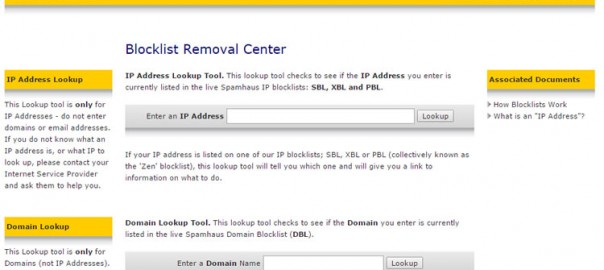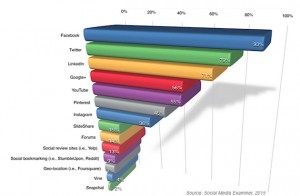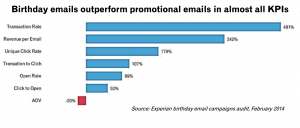
A reliable web host keeps your site up and running (accessible to clients) consistently with minimal downtime; a bad host, on the other hand, can be detrimental to your success by capsizing traffic, not to mention your SEO ranking.
As a smart business owner, you must be aware that even the best of hosting providers can turn into bad hosts (even though that they were good initially) one day.
For those who are running a business online – it’s necessary to put up certain level of defense and protect yourself from your own web host. Here are my ideas on how to get it done.
1. Stick with a hosting provider with a long trial period
Web hosting providers should offer at least a month, but there are some that offer an even longer trial period. A long trial period shows that the hosting company is confident in the quality of the service they have to offer.
Some of the best hosts I’ve tried in the past offer the longest full refund period.
- InMotion Hosting – 90 Days
- DreamHost – 97 days
- SiteGround – 45 days
Some companies (for example, BlueHost and iPage) also offer an anytime money back guarantee. Let’s say you pay for a year of service, but after 90 days, you are truly unhappy with the quality of the hosting company. With a money back guarantee, you can request a refund and cancel the remainder of the time on your account. Keep in mind that companies that offer this guarantee typically know they can deliver a great service and that you’re unlikely to want to cancel.
Guarantees are a signal that you can trust that company more than one that does not stand behind its service.
2. Register your primary domain with a different party
Many hosting companies now offer a free domain registration with the purchase of a hosting package. However, it may be smart to spend an extra $ 10-$ 15 and register your primary domain with a different registrar.
I normally use the free domain for my secondary sites, which I use for host testing or SEO experiments. That way, if the domain gets tied to that hosting company and I want to switch, I haven’t lost untold hours of work on a website I’ve been building traffic for.
It is much easier to move to a new hosting company when you register your domain with a different party. Otherwise, you wind up having to wait for your hosting company to release your domain. This can get tricky since they are also losing your hosting business.
If you’ve already registered your domain with your hosting company, don’t panic. You can still transfer it out to a third party registrar. For example, GoDaddy offers complete instructions on how to transfer your domain name to their registrar service. There are many different registrar services you can use in a similar way. GoDaddy is just one.
3. Be careful with your payment method
While it is convenient to set up an automated payment plan with your hosting company, it can also cause a nightmare when you wish to cancel. Unscrupulous companies may continue to charge a debit or credit card long after you’ve already cancelled your account.
PayPal vs Credit Card vs Debit Card
There are three popular payment options when signing up for a web hosting account. Each type of payment has its own pros and cons. 10 years ago I had to cancel my credit card because a hosting company refused to stop charging my card. It was inconvenient.
- PayPal – easy to cancel the subscription yourself from user account panel; built in features to protect buyers from frauds and theft; you don’t need to reveal your pay card information.
- Credit card – you may have to cancel your account to stop charges; depends on your credit card company – some banks offer extra protection to sensitive info; some not.
- Debit card – an unethical company may continue to charge your account or you may incur fees trying to stop payment; easier to replace if anything bad happens; you will not be charged (just withdraw all the money from your debit account) should the hosting company further charge you after you have cancelled your account.
4. Avoid blacklisted IPs
There are many reasons to avoid blacklisted IPs, including the reputation of the hosting company and more importantly so your emails sent from your domain are not blocked by other providers due to the IP. A blacklisted host means your email may be blacklisted as well.
- Before signing up, ask for the IP address of your web host.
- Run a quick check using Spam Haus Lookup tool.

SpamHaus Blocklist removal Center
5. Compare features and prices with other hosting companies
As a business owner, you want to get the best possible deal. You should compare features and prices, but also look at user reviews and even contact a few people who host with those companies. Take your time, do your research and it is more likely you’ll be happy with your hosting company.
Two questions you need to ask:
- Is there a better option compared to the shortlisted web host?
- Is the web host too expensive or too cheap?
A rule of thumb when getting bids for any type of job is to throw out the lowest bid and the highest bid. Since a web host is essentially bidding for your business with what they have to offer and the price for that package, you should also throw out the lowest and highest hosts if it makes sense to eliminate those options. Remember:
- When a hosting deal is too good to be true, it probably is.
- You get what you pay for. If you choose a hosting company that costs $ 0.99/month, you will probably end up on an overloaded server.
- Avoid hosting companies that charge a higher price unless there is a good reason. For example, DreamHost charges $ 20/mo for Managed WordPress Hosting but they provide in-house technical WordPress support (which is awesome). InMotion Hosting charges slightly ($ 2/month extra) but their web host is ultra-fast and reliable.
6. Back up your site regularly
One of the worst catastrophes a website owner can deal with is a website meltdown. Whether it is caused by hackers or is a result of a server issue, losing even part of your hard work is time consuming and can be costly.
- First, always back up your own site, no matter who your web hosting company is. Do this regularly. If you’re using WordPress, there are plenty of free plugins and cheap web services that will automate this work for you.
- You can also program your website to backup from cPanel. It is a simple chron (my programmer gave me this a long time ago – please use at your own risk). You can get free scripts at com and MakeUseOf.
7. Track your web host uptime

A quick look inside WHSR Uptime Monitor system.
Unfortunately, the only way to know for sure if a hosting company actually has the 100% uptime they claim is to track it on your own. While any host will have the very occasional downtime due to an upgrade or minor issue, the better hosts will have very little downtime.
Track your site’s uptime by using free tools like WHSR Uptime Monitor, Uptime Robot, and Pingdom.
And here’s my detail guide (and more tool suggestions) on how to track your host uptime efficiently.
8. Use strong passwords and change them regularly
Hackers keep getting smarter, so it isn’t enough just to put strong security in place. One scenario might be if someone working for a hosting company leaves on bad terms and takes passwords. That person now has the password to your site. He can sell it or use it himself.
- Use a strong password that isn’t easy to guess. Use a combination of letters, numbers, upper and lower case and special symbols.
- Change your passwords frequently for the reason mentioned above about the password being stolen or hacked into.
- Keep good anti-virus software on your computer and make sure it’s up to date. This will keep hackers from gaining access to your computer and stealing your keystrokes/passwords.

Five worst password in 2014 according to studies: #1 123456, #2 password, #3 12345 #4 12345678, and #5 QWERTY.
9. Always keep your options opened
Just because you chose a host doesn’t mean you’re stuck with that host forever. There are times when a hosting company starts out on a positive note but then goes downhill. Sometimes a hosting company grows too quickly for the servers they run and uptime and customer service suffers.
Keep in mind:
- It really isn’t difficult to switch your web host. Some companies will even migrate the site for free upon request.
- If done right, switching doesn’t affect Google ranking. Make sure you point your domain to the new name servers, for example.
- If your current host won’t give you a deal, another host may give you a new customer discount.
10. Understand your hosting needs
Knowing what your needs are as a website owner can help you understand exactly what you need in a hosting company.
- Look toward future goals for your website. For example, if you need shared hosting right now but you think you might need VPS hosting in a year or two, then you’ll want a hosting company that allows you to upgrade the account easily.

Pros vs cons: Compare shared, VPS, dedicated, and cloud hosting.
Bottom Line: Why A Good Web Host Matters?
Think your web host is the least important part of your online business success?
Well think again.
Before I end this post, I would like to talk a little more about why a good web host matters.
The hosting company you choose for your website makes the difference in how fast your site loads, whether your site is always available to site visitors (little or no downtime), and even how you rank in search engines because of those factors.
I just can’t stress enough how important it is to host your blog on a good, reliable web host.
You are bleeding money when you stuck with a bad host
Your blog hosting needs to be up at all times so your readers can access your blog 24×7. You might have a reader in the US accessing your blog at 8:00 a.m. EST and another in Hong Kong accessing your blog at 3:00 a.m. EST, for example.
Site speed is also an important consideration and impacts not only whether a visitor bounces from your website, but how high Google ranks that site. Since 2010, Google has added your site speed as part of the algorithm used to determine your site’s ranking.
Faster loading times also equals a higher conversion rate. Real life experience: When I added CDN services to my site WHSR, bounce rate dropped significantly and affiliate sales shot up by 80-120%. Those results are from one simple change that makes my site load more quickly. Also faster site load speed = higher conversion rate. Real life experience – when I added CDN services to my site WHSR bounce rate dropped significantly and affiliate sales shoot up by 40-60%.
Digital & Social Articles on Business 2 Community(136)
Report Post





